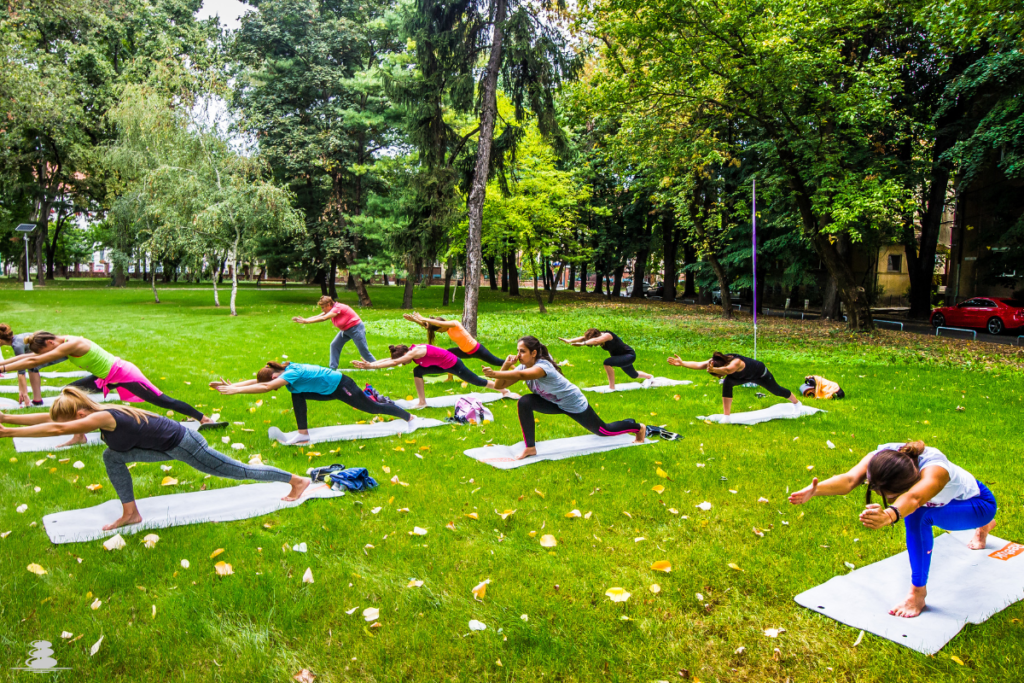We all know that exercise is good for the body, but did you know that outdoor exercise can also provide a major mental health boost? The benefits of outdoor exercise are far-reaching, not just for your physical fitness, but also for your mental well-being. While exercising indoors can certainly keep you in shape, taking your workout outside allows you to tap into a whole new set of mental health benefits. Whether it’s a jog through the park, a hike through the mountains, or even just a simple walk around the block, outdoor exercise has a unique way of uplifting your mood and reducing stress.
When you’re out in nature, surrounded by fresh air and natural beauty, your mind can experience a sense of calm and clarity that you can’t always get from being inside. This combination of movement and nature not only boosts your physical health but also has the power to lower anxiety, improve your focus, and increase your overall sense of well-being. There’s something incredibly soothing about being outdoors, and when you add exercise into the mix, it creates the perfect environment to rejuvenate both your body and mind. Let’s dive into the many benefits of outdoor exercise and explore how it can become an essential part of your mental health routine, helping you feel more relaxed, energized, and mentally sharp.
1. The Power of Nature and Fresh Air

One of the primary reasons outdoor exercise is so beneficial for mental health is the natural environment itself. Nature has a unique ability to calm the mind and reduce stress. Studies have shown that spending time in nature can significantly lower cortisol levels (the stress hormone) and decrease feelings of anxiety and depression. The simple act of being outside, whether it’s in a park, forest, or beach, exposes you to elements that are known to help clear your mind and improve mood.
Fresh air also plays a critical role. Unlike indoor environments where air can feel stagnant, the outdoor air tends to be cleaner and revitalizing. Breathing in fresh, oxygen-rich air helps your body function better and can make you feel more alert and energized. The sounds of nature—like birds chirping, wind rustling through the trees, or waves crashing—also contribute to a calming atmosphere that helps reduce mental fatigue and allows you to focus better on the task at hand.
2. Boosts Your Mood
When you exercise outdoors, your body releases endorphins—natural chemicals that trigger a feeling of happiness and well-being. These “feel-good” hormones are your body’s natural stress relievers, helping combat anxiety, depression, and low mood. But it’s not just about physical activity. Being outdoors, surrounded by nature, can enhance this effect. The sights, sounds, and smells of nature have a positive influence on your mood, adding an emotional and psychological layer to the physical benefits of exercise.
Whether you’re hiking a challenging trail or simply enjoying a stroll through the park, outdoor exercise creates an immediate uplift in mood, leaving you feeling more positive and upbeat. The more you engage in these activities, the more you’ll experience long-term benefits for your emotional well-being.
3. Stress Reduction

Exercise is widely recognized for its ability to reduce stress, but outdoor exercise takes this benefit even further. When you engage in physical activity in natural settings, it helps to lower the production of stress hormones like cortisol, while simultaneously improving your body’s ability to manage stress. This means that outdoor workouts not only help you unwind during the activity itself but also make you more resilient in the face of future stressors.
Additionally, outdoor exercise encourages mindfulness. The act of being present in the moment—focusing on your surroundings, your breath, and your movements—helps you clear your mind of worries and focus on the here and now. This mindfulness aspect can help reduce anxiety and foster a sense of calm and peace that lasts long after the workout is over.
4. Mental Health Boost
Outdoor exercise can significantly boost your cognitive function, mental health, and concentration. The connection to nature provides mental restoration that often leads to enhanced focus and sharper thinking. When you’re outside, your brain is less overwhelmed by the sensory overload and distractions that come from indoor environments. Nature offers a peaceful, restorative backdrop that helps to clear the mind, leading to better decision-making and clearer thinking.
Studies have shown that even just a short walk outside can increase cognitive performance, improve memory, and boost overall brain function. So, if you’re feeling mentally foggy or having trouble focusing, a quick outdoor workout can be just what you need to reset and feel more alert.
5. Encourages Social Interaction
While outdoor exercise can be a solitary activity, it also presents opportunities for social interaction, which is crucial for mental well-being. Engaging in outdoor activities like group fitness classes, hiking clubs, or biking with a friend helps build social connections and combat feelings of isolation. Social interactions can be uplifting and provide a sense of belonging, which is vital for mental health.
Even casual interactions with fellow walkers, runners, or cyclists can improve your mood and boost your overall emotional health. Positive social interactions during outdoor exercise can strengthen your support system, reduce feelings of loneliness, and foster a sense of community and connection with others.
6. A Break from Technology
We live in a world that’s constantly connected through technology—whether it’s checking emails, scrolling through social media, or working on a computer. This constant digital stimulation can lead to mental fatigue, burnout, and a lack of focus. Outdoor exercise provides the perfect escape from technology, allowing you to disconnect and recharge.
Spending time away from screens and immersing yourself in nature can help reduce mental clutter, giving you the mental space to think more clearly and feel more relaxed. This break from technology fosters a sense of mindfulness, where you can focus on the present moment rather than the digital noise that often bombards us. By taking this time for yourself, you give your brain the opportunity to reset, refresh, and be more productive when you return to your day-to-day tasks.
7. More Energy and Better Sleep
You may be surprised to learn that outdoor exercise can actually help you sleep better at night. Physical activity, especially when done outside, helps regulate your circadian rhythm, which is the natural process that controls your sleep-wake cycle. Being outdoors exposes you to natural light, which helps signal to your body that it’s time to be awake during the day and rest at night.
In addition to improving your sleep, regular outdoor exercise can increase your energy levels during the day. Unlike indoor workouts, which can sometimes feel tiresome and confining, outdoor exercise rejuvenates you by offering a change of scenery and the freedom to move in open spaces. As you build your strength and endurance through regular outdoor activity, you’ll notice increased vitality throughout the day, leading to a more energized and productive lifestyle.
Conclusion
Outdoor exercise is much more than just a way to stay physically fit—it’s an incredible tool for boosting your mental health. The benefits extend far beyond the obvious physical improvements. Regular outdoor exercise has the power to reduce stress, alleviate anxiety, and lift your mood in ways that indoor workouts often can’t match. It goes beyond just burning calories or building strength—exercising outside allows you to connect with nature, take a break from the stresses of daily life, and experience the soothing effects of the natural world on your emotional and psychological well-being.
The combination of fresh air, natural surroundings, and physical movement offers a unique opportunity to refresh both your body and mind. The outdoors provide a healing environment that helps clear your thoughts, reduce mental fatigue, and allow you to be present in the moment. Whether you’re seeking to improve your emotional well-being, enhance your focus, or simply enjoy a break from technology, stepping outside for exercise gives you a chance to reset and recharge.
Moreover, the positive effects of outdoor exercise are not just temporary—they build up over time. Consistent outdoor activity helps increase resilience to stress, enhances your mental clarity, and can even improve the quality of your sleep. These long-term benefits contribute to a more balanced, positive outlook on life.
So, whether you’re in need of a mood boost, looking to reduce anxiety, or simply craving a mental reset, outdoor exercise is one of the best ways to nurture your mental health. Next time you feel overwhelmed or drained, step outside, get moving, and allow the healing power of nature to rejuvenate you. Make outdoor exercise a part of your routine, and let nature work its magic on both your body and mind.
For more ways to enhance your mental well-being, check out my post on 5 Best Sports for Mental Health and Focus.
Images: canva



